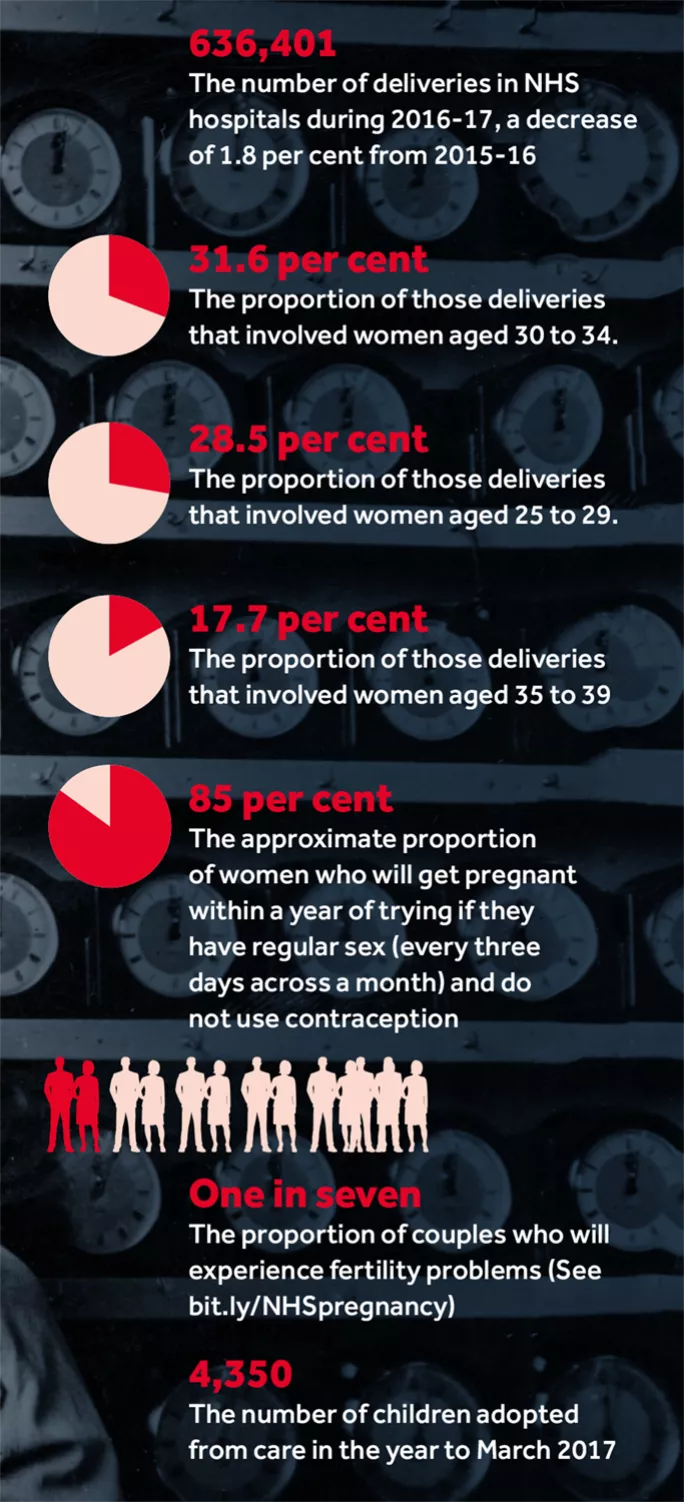Whatever the circumstances, and regardless of your situation, becoming a parent will change your life immeasurably.
And whether you are becoming a parent with your spouse, with a partner or on your own, whether you’re trying to conceive, starting IVF or thinking about adopting or fostering a child, there’s so much to consider.
When should you begin the process? How much maternity or adoption leave will you take? Should you share leave with your partner? Will having a child affect your career?
The temptation is to try and plan everything down to the last detail, but this is often not possible or practical: finances, fertility, housing, bureaucracy, career and other children can all derail the best-laid plans.
But in teaching you will hear a lot of people tell you different: that you should plan it “properly”. You’ll be told that the right time to give birth is the beginning of September, once the new term has started, so the summer holidays do not form part of your maternity leave and you get the most difficult months of pregnancy off work.
If you don’t give birth in September, you may be told that you didn’t plan it very well. I had first-hand experience of that: my baby was born in July.
Such comments are ridiculous. I’d argue that most September-born babies with teaching parents are a result of luck, rather than design. Most teachers’ bedrooms don’t feature a wall-planner showing optimum conception windows mapped against weeks off work. And even if some teachers do have that chart, getting pregnant is not as easy as it is often perceived to be (by those that have not tried). Your body almost always picks the right time, not you. That is not to say that I advocate no planning at all. But I would replace the word “planning” with “preparation”.
The physical demands of pregnancy
It wasn’t until I became pregnant that I realised how little I knew about issues surrounding pregnancy and maternity in the workplace.
I hadn’t realised, for example, how physically demanding pregnancy is, and how this can impact on teaching in the classroom every day.
I had believed, naively, the myth that teachers’ maternity pay is generous, when the reality is that for many, without additional savings or another income, it won’t pay the bills.
I’d hugely underestimated the impact that my new role as a parent would have on my professional identity.
I also came to realise that pregnancy and maternity are rarely spoken about honestly, giving new parents a sense of fear, loneliness and, in some cases, shame about how they’re feeling.
And this is one of the areas where women are supported almost exclusively and there is still a huge focus on the heteronormative family. Fathers, as well as those in the LGBT+ community, are often left out of the conversation.
Finally, I came to realise that support is crucial. For me, this came from The Maternity Teacher/Paternity Teacher Project (www.mtpt.org.uk).
Set up by Emma Sheppard after the birth of her first child, it aims to inspire, empower and connect parents of all genders who choose to take part in CPD while on leave, believing that this time should be valued, rather than seen as a career gap.
It challenges attitudes around parental leave and aims to create family-friendly schools, to address workload and benefit all staff.
So yes, be prepared, but don’t get too bogged down in the planning. And good luck.
Claire Nicholls is deputy inclusion and Sendco at Bridge Learning Campus in Bristol, and is the South West representative for The Maternity Teacher/Paternity Teacher Project

